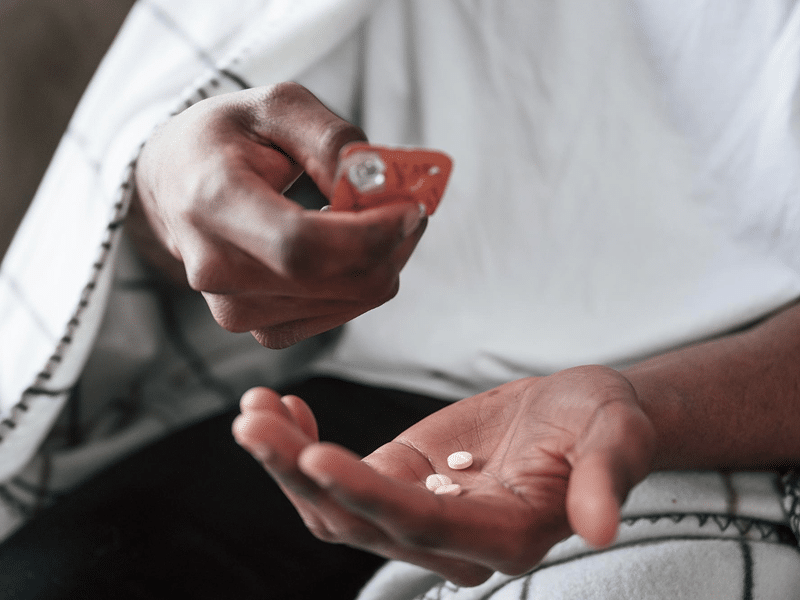The U.S. Agency for International Development (USAID) is responsible for nearly 70% of American global health aid [9]. As a result, recent policy changes by the United States to review foreign aid payments have led to funding cuts for several African health programs. These cuts affect the supply of essential medicines and may harm patient safety. Presidential orders that reduce the USAID budget have stopped the purchase and delivery of vital medications for HIV, malaria, tuberculosis, and other major health conditions [1]. This blog looks at how drug shortages can delay treatment, create drug resistance, and increase patient deaths in African nations. It also examines the role of pharmaceutical companies in maintaining drug safety monitoring despite reduced funding and limited resources.
Table of Contents
1. Introduction
2. Historical Context: Previous U.S. Funding Cuts
3. Current Impact on Drug Availability
4. Consequences for Patient Safety
5. The Role of Pharmacovigilance
6. Conclusion
7. Frequently Asked Questions
Historical Context: Previous U.S. Funding Cuts
On January 20, 2025, U.S. President Donald Trump signed an Executive Order that suspended foreign aid for 90 days while aid programs underwent review [8]. Soon after, USAID received instructions to stop fulfilling existing contracts. This decision significantly impacted U.S.-funded health projects across Africa and worldwide [1]. Some estimates show that:
- More than 90% of the agency’s programs have ended.
- Thousands of staff positions were eliminated. [1].
U.S. global health efforts, such as the President’s Emergency Plan for AIDS Relief (PEPFAR), also experienced disruptions due to reduced funding. PEPFAR has saved 25 million lives since 2003 [1]. By March 2025, the administration had moved to permanently cancel billions of dollars in foreign aid, substantially reducing U.S.-funded global health programs (2). Since the U.S. has long been a leading provider of global health assistance, these actions created challenges for African health systems [2].
The 2025 funding freeze represents one of several instances where U.S. presidential decisions have decreased foreign health aid. In 2017, President Donald Trump expanded the Mexico City Policy, also called the global gag rule. This policy initially prevented foreign NGOs that provided abortion services from receiving U.S. aid [3]. Under the expanded policy:
- All U.S. global health assistance (~$9.5 billion) became subject to these restrictions. [3]
- Many clinics that depended on U.S. funding reduced or stopped operations, affecting services for HIV, malaria, and tuberculosis. [3]
This historical example shows that when funding stops abruptly and local systems cannot adequately fill the gap, disease control efforts suffer interruption. [1]
Current Impact on Drug Availability
The 2025 withdrawal has created shortages of critical drugs throughout Africa, affecting multiple treatment areas. Since many African nations rely on USAID and PEPFAR to buy and distribute antiretroviral (ARV) medications, HIV treatment programs have been notably impacted [4].
In March 2025, the World Health Organization (WHO) warned that eight countries, including Kenya, Lesotho, South Sudan, Burkina Faso, Mali, and Nigeria, could potentially run out of HIV medication supplies within months due to reductions in foreign aid [4].
WHO representatives warned that disruptions in HIV therapy might undo two decades of progress, with estimates suggesting:
Similarly, U.S. aid supports tuberculosis (TB) detection and treatment services in many low-income regions. The cancellation of various program contracts has limited TB testing, patient follow-up, and supply lines for medications in countries like Zambia and Tanzania [5]. Some stakeholders have expressed concerns about a growing risk of drug-resistant TB if patients cannot maintain consistent access to therapy [2]
As medical supplies decrease, health workers predict:
- Higher infection rates.
- Increased mortality, particularly among already at-risk populations. [5].
Consequences for Patient Safety
Drug shortages create direct risks for patient safety, including preventable deaths, increased disease transmission, and prolonged treatment interruptions. One critical outcome is higher mortality when life-saving drugs for HIV, malaria, TB, and other conditions become unavailable [4]. Models suggest that without adequate funding:
- Millions of additional HIV-related deaths may occur by 2030. [4]
- In southern Africa alone, over half a million extra HIV-related deaths could occur in the next decade. [6]
Another significant concern is the development of drug resistance caused by incomplete or inconsistent treatment. Physicians and NGOs report that a lack of reliable ARV and TB drug supplies may contribute to a rise in multi-drug-resistant HIV or tuberculosis [2]. This problem not only endangers current patients but also weakens the effectiveness of standard treatments for future patients. Furthermore, shortages can threaten broader disease control efforts by reversing previous progress. Healthcare professionals are particularly concerned about the possibility of disease comeback and outbreaks in places where ongoing programs previously maintained control [1]. These developments create challenges for patient safety, as increasing caseloads can strain healthcare facilities and reduce overall quality of care.
The Role of Pharmacovigilance
Pharmacovigilance involves monitoring and evaluating the safety of medicines. This process relies on collaboration among health authorities, providers, and the pharmaceutical industry. Under reduced funding conditions, pharmaceutical companies that produce or distribute treatments for HIV, TB, and malaria face obstacles in fulfilling these responsibilities. Many such companies previously partnered with donor-funded programs to manage distribution, yet the funding shortfall has affected these channels [7]. Firms still have an ethical duty to ensure product safety, including the management of medication stocks and storage conditions.
A related issue is tracking adverse drug reactions. Typically, companies receive safety data from healthcare staff and government agencies. But when clinics downsize or close and staff are laid off, it becomes harder to gather this safety information [1].. Reduced funding can weaken reporting systems, making it difficult to identify and manage drug-related adverse events. Additionally, drug shortages may encourage the circulation of counterfeit or poor-quality medicines, increasing risks to patients.
To mitigate these issues, pharmaceutical companies are encouraged to:
• Confirm the safety and integrity of remaining stocks.
• Explore new ways to monitor drug safety amid reporting disruptions.
• Collaborate with authorities to prevent counterfeit products. [1].
Yet, businesses struggle to fully replace the functions of robust healthcare systems and donor-backed programs.
Conclusion
U.S. funding cuts have affected patient safety across Africa by creating drug shortages and reducing health service capacity. Past instances of global health aid restrictions, such as the expansion of the Mexico City Policy, show that abrupt disruptions in external support can lead to setbacks in disease management. Currently, the interruption of HIV, TB, and malaria services could result in higher mortality rates, more frequent treatment interruptions, and potential disease comeback. Over the longer term, building self-reliant health systems could reduce the negative effects of sudden policy changes. Yet, immediate needs point to the importance of seeking new funding sources or restoring existing grants to prevent adverse outcomes. In summary, examining current and historical U.S. funding withdrawals reveals the fragile nature of international healthcare programs. Ensuring steady resources along with robust pharmacovigilance could protect African health outcomes in the face of unpredictable economic or political shifts. To strengthen global health outcomes despite political and economic shifts, stakeholders must not only restore funding but also adopt smarter tools for risk detection and response.
That’s where RegASK comes in.
RegASK is an AI-driven regulatory intelligence platform, which empowers pharmaceutical and global health organizations to track policy changes, monitor drug safety, and ensure regulatory compliance especially in high-risk, low-resource settings.
Book a demo now to discover how RegASK can support your regulatory strategy.
FAQs
- What are the direct effects of drug shortages on patient safety?
Drug shortages can lead to delayed treatments, increased mortality, treatment interruptions, and the emergence of drug-resistant infections such as multidrug-resistant HIV or tuberculosis. - How does reduced foreign aid impact HIV, TB, and malaria treatment in Africa?
Foreign aid cuts disrupt the supply of essential medicines and weaken healthcare systems, resulting in stockouts, reduced clinic operations, and rising infection and death rates. - What is the Mexico City Policy or the global gag rule?
The Mexico City Policy, also known as the global gag rule, is a U.S. government policy that prohibits foreign NGOs receiving U.S. funding from providing or promoting abortion services. Its expansion in 2017 extended these restrictions to all U.S. global health assistance, affecting services for HIV, TB, and malaria. - Why is pharmacovigilance critical during funding disruptions?
Pharmacovigilance ensures that the safety and quality of medicines are monitored even during funding shortages. It helps detect adverse drug reactions, prevent counterfeit drugs, and maintain public health safeguards.
References
- Brooking – Navigating US global health aid cuts: What can past donor exits teach us?
- Npr.org – ‘You can now die’: The human cost of America’s foreign aid cuts in Africa
- Thelancet – The Trump global gag rule: an attack on US family planning and global health aid
- Reuters – Eight countries could run out of HIV treatments due to USAID cuts, WHO says
- Reuters – Services to millions of people collapse as USAID cuts contracts worldwide
- Theguardian – US shutdown of HIV/Aids funding ‘could lead to 500,000 deaths in South Africa’
- Theguardian – ‘Some of these diseases are in the Bible’: despair as cuts halt progress on age-old tropical illnesses
- gov – REEVALUATING AND REALIGNING UNITED STATES FOREIGN AID
- org – How Much Global Health Funding Goes Through USAID?
Subscribe to the latest regulatory news
Curated newsletters
Relevant industry info
Access expert insights

